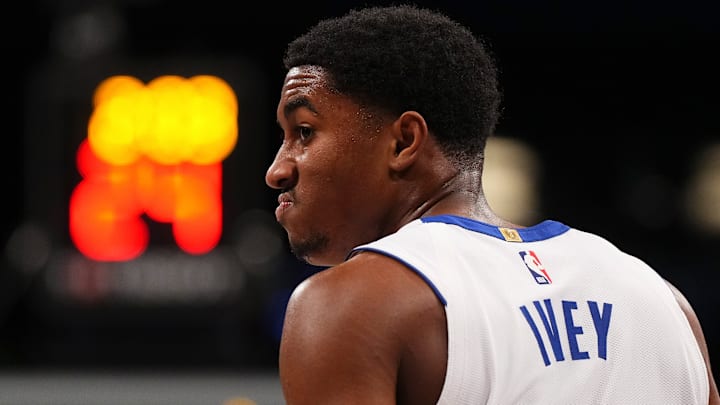The Detroit Pistons may not extend Jaden Ivey this summer, but that doesn’t mean he’s not part of their long-term plans.
Both Ivey and Jalen Duren have been the subjects of rampant speculation since they are eligible for extensions this summer and we’ve heard painfully little about it from either the players or the team.
I’m sure people are working behind the scenes, but publicly, both sides have been silent.
This could be because they are far apart on the number, as Ivey’s agents are going to point to guys like Immanuel Quickley and want the same for their client.
The Pistons are going to point to an inconsistent and incomplete record of achievement for Ivey as a reason not to offer him a huge deal.
All of this is posturing, as things have changed in the NBA when it comes to rookie extensions and restricted free agency.
Detroit Pistons: No rubber stamp contract for Jaden Ivey
For years we watched rookie extensions practically get rubber stamped by teams desperate to keep their young talent, often with disastrous results. Second contracts are generally a huge leap of faith and in the past, teams were making that leap without hesitation.
But under the new CBA, rookie extensions are a massive risk unless that player has already evolved into a star. That’s why we saw guys like Cade Cunningham, Jalen Williams and Paolo Banchero get extended while many of their peers wait it out.
There is far more risk to extending a player early than to be patient, as teams simply don’t lose players in restricted free agency and often aren’t even challenged. We’ve seen it this summer with players like Josh Giddey, Jonathan Kuminga, Quentin Grimes and Cam Thomas, restricted free agents whose teams are playing hardball knowing there’s little chance of them leaving.
Not only do few teams have cap space to spend each summer, but putting an offer sheet on a restricted free agent halts your offseason business until it is resolved, and the other team can match any offer anyway, so teams are reluctant to tie up funds when there is little chance they’ll pry the player away.
It’s why we’ve seen an uptick in sign-and-trades in recent years and why the Detroit Pistons will ultimately control Jaden Ivey’s fate.
If he plays well, everyone wins, as Detroit will have their guy and Ivey will get his extension, but if there are still questions, the Pistons can move him at the deadline or just wait until the offseason, when they’ll have options.
Some fans are already predicting that Ivey is gone if he’s not extended, but that is not at all the case, as the Pistons aren’t at risk of losing him and have the luxury of being patient, which makes is far less likely they will overspend.
